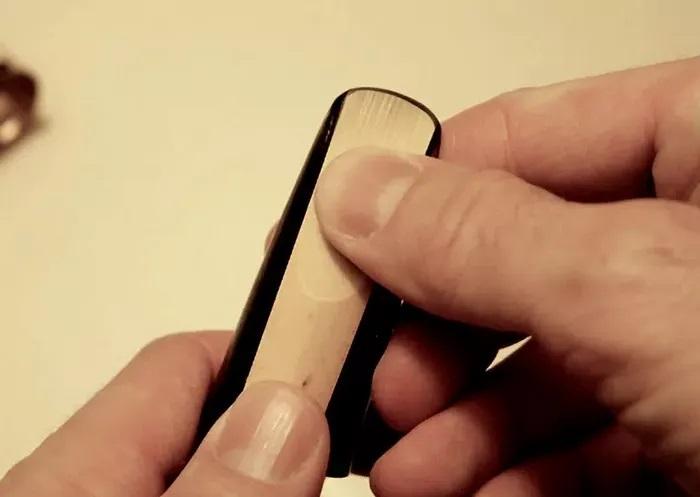How Long Do Baritone Saxophone Reeds Last? You Should Know

The baritone saxophone is a powerful and unique instrument, known for its deep, rich tones and wide range. One critical component of its sound production is the reed. Understanding how long baritone saxophone reeds last is essential for maintaining optimal sound quality and performance. This article explores the lifespan of baritone saxophone reeds, the factors that influence their durability, signs of wear, and practical tips to extend their life.
What Is a Baritone Saxophone Reed?
A reed is a thin piece of cane or synthetic material that vibrates to produce sound when air is blown through the saxophone mouthpiece. For the baritone saxophone, reeds are larger than those used on alto or tenor saxophones, reflecting the instrument’s larger size and deeper pitch. The quality and condition of the reed directly impact the instrument’s tone, response, and ease of play.
Average Lifespan of Baritone Saxophone Reeds
On average, a baritone saxophone reed lasts anywhere from one week to several months depending on use, care, and quality. For professionals who practice and perform daily, reeds may last one to two weeks before noticeable deterioration affects sound quality. Casual or student players who play less frequently can expect reeds to last several weeks or longer. However, this varies widely based on several key factors discussed below.
Factors That Affect Reed Lifespan
Frequency and Duration of Playing
The more you play your baritone saxophone, the faster your reeds will wear out. Daily intense practice or multiple performance sessions can cause a reed to deteriorate in just a few days. Conversely, players who use their instrument only occasionally may see reeds lasting for months since they are not under constant stress.
Reed Quality and Material
Reeds come in a variety of materials, including natural cane and synthetic options. Natural cane reeds are widely favored for their rich tone but tend to wear out faster than synthetic reeds. Higher quality cane reeds also tend to last longer due to denser cane and better manufacturing techniques. Synthetic reeds can last for months or even years but often sound different from cane reeds, which many players find less desirable.
Strength of the Reed
Reed strength (thickness) influences longevity. Softer reeds (lower strength numbers like 2 or 2.5) vibrate more easily but generally wear out faster. Harder reeds (higher strength like 3 or 3.5) are more durable but require more breath control and embouchure strength. Choosing the right reed strength for your skill level and style can help maximize reed life.
Player’s Technique and Care
Good playing technique affects reed wear significantly. Players who use excessive pressure or poor embouchure may damage reeds prematurely. Proper care, such as wetting reeds before playing and rotating multiple reeds, can greatly extend their usable life.
Environmental Factors
Humidity and temperature have a strong impact on reed condition. Dry environments can cause reeds to crack or warp, while excessive moisture can lead to mold growth. Keeping reeds in a stable, moderate environment helps maintain their integrity.
Signs Your Baritone Saxophone Reed Needs Replacing
Loss of Tone Quality
If your tone becomes dull, flat, or airy, it could indicate that the reed is worn out. A fresh reed produces a clear, focused sound with good projection.
Difficulty Producing Notes
As reeds age, they may become harder to play, requiring more effort to produce sound or causing squeaks and unwanted noises.
Visible Damage or Warping
Check for chips, cracks, or warping along the reed edges or tip. Any visible damage usually means the reed should be discarded.
Physical Soft Spots or Weakness
Gently feeling the reed for inconsistencies or soft spots can indicate weakened areas prone to failure during play.
How to Extend the Life of Your Baritone Saxophone Reeds
Proper Storage
Always store your reeds in a reed case that allows airflow and prevents warping. Avoid leaving reeds in the mouthpiece when not playing, as trapped moisture can damage them.
Rotation of Reeds
Using several reeds in rotation instead of relying on a single reed daily allows them to dry completely between uses, prolonging their lifespan.
Cleaning and Maintenance
Rinse reeds with clean water after playing and gently wipe to remove saliva and debris. Avoid harsh chemicals or excessive drying.
Wet Reeds Before Playing
Soak or wet reeds before each playing session to prevent cracking and help the reed vibrate properly.
Avoid Excessive Pressure
Playing with excessive bite or tension can quickly damage reeds. Focus on improving embouchure technique to reduce strain on the reed.
Buying the Right Baritone Saxophone Reeds
When purchasing reeds, consider the following:
Brand reputation: Established brands often produce more consistent reeds.
Strength: Choose strength based on your playing style and experience.
Quantity: Buying in bulk can save money but always test individual reeds for quality.
Material: Decide between cane and synthetic based on your tone preference and longevity needs.
When to Replace Your Reed: A Practical Timeline
For most serious baritone sax players, a typical reed replacement schedule looks like this:
Professional daily players: Replace reeds every 1–2 weeks.
Intermediate players: Replace every 3–4 weeks.
Occasional players: Replace every 2–3 months or as needed.
Always listen carefully to your reed’s performance and replace it when tone or response declines.
Conclusion
The lifespan of a baritone saxophone reed varies widely depending on playing frequency, reed material, strength, care, and environmental conditions. While some reeds last only a few days for professionals, others can last months for casual players. Proper care, rotation, and mindful playing technique can extend reed life significantly. By paying attention to signs of wear and maintaining your reeds well, you ensure consistent tone quality and enjoy better performance on your baritone saxophone.
- Art
- Causes
- Crafts
- Dance
- Drinks
- Film
- Fitness
- Food
- Oyunlar
- Gardening
- Health
- Home
- Literature
- Music
- Networking
- Other
- Party
- Religion
- Shopping
- Sports
- Theater
- Wellness


